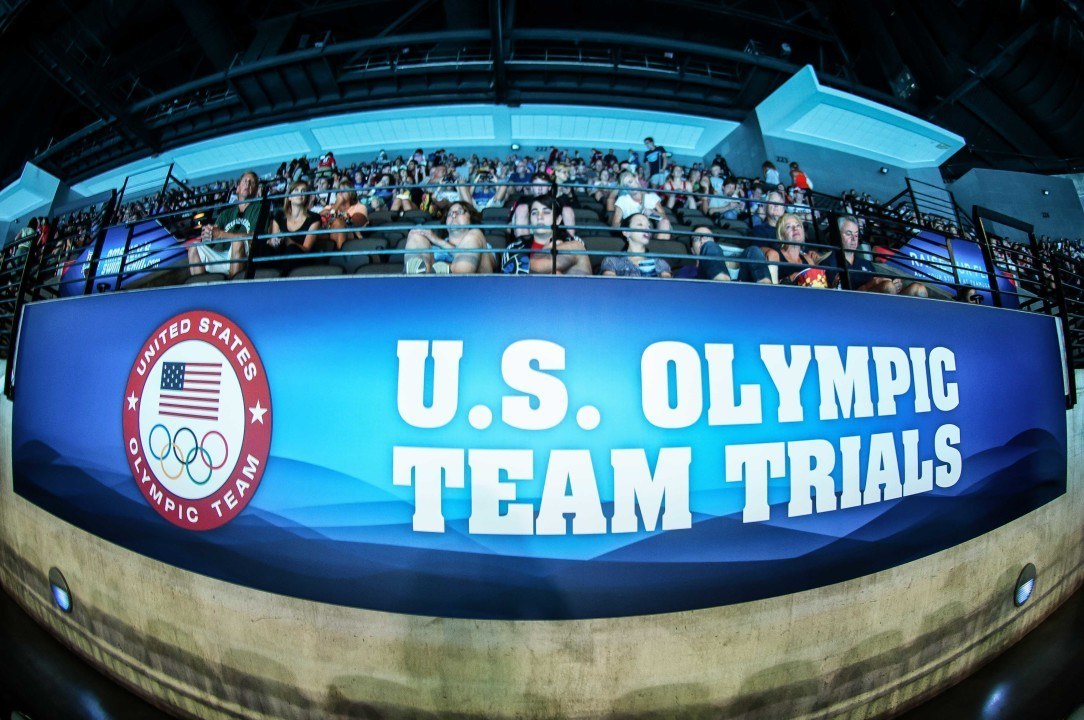The 2020 U.S. Olympic Trials are scheduled for Omaha, Nebraska from June 21st to the 28th, but good things don’t come cheaply. The city of Omaha has pledged $750,000 in taxpayer money to host the event, per the The Omaha World-Herald ($).
According to the report, Omaha‘s City Council approved a plan this week to make its 2nd of 3 annual $250,000 payments to the Omaha Sports Commission for USA Swimming. The funds are required to ensure Trials stay in Omaha after Mutual of Omaha, one of the organization’s largest corporate sponsors in the past, scaled back its support. That partnership ended abruptly with the expiration of a contract between USA Swimming and MOO at the end of 2016.
In the post-2016 Olympic Trials revenue review, we ported how Omaha‘s Convention and Visitors Bureau estimated the event brought an estimated $74 million impact to the city.
That year Omaha, Nebraska’s Metropolitan Entertainment and Convention Authority (MECA) reported an increase in comparative yearly profits for fiscal period 2016. As the organization oversees the city’s CenturyLink Center within its venue portfolio, its $4.7 million profit figure was partly be attributed to the ’16 Trials.

No brainer. Obviously Omaha gets it. You would be shocked how many municipalities don’t understand the return on investment events like this bring.
I think you’re going to have to be more specific when you say “events like this,” because cities in the US spend TONS and TONS of money in an effort to build the infrastructure for and attract major sporting events to their cities…
There are varying opinions and data around on whether the return on investment for hosting major sporting events is actually there (see: the Olympics), but to me it seems like one of American municipalities’ favorite things to invest in…
Andrew Zimbalist, an economics professor at Smith College, has written extensively on how municipalities actually tend to lose out in hosting these events, especially the olympics, world cup, etc. He has extended that theory to the facilities arems race we see in collegiate athletics today. His writings include Circus Maximus: The Economic Gamble Behind Hosting the Olympics and the World Cup (2015), Unwinding Madness: What Went Wrong with College Sports and How to Fix It (2017), No Boston Olympics: How and Why Smart Cities Are Passing on the Torch (2017 with Chris Dempsey), and Rio 2016: Olympic Myths, Hard Realities (2017). He’s made his living off this theory, so he’s certainly biased.
Here the question is less did the… Read more »
There has to be something to show for it not just absorbing the extra costs eg rubbish , policing . Whilst these need to be contributed to directly , small things like ramps & pedestrian friendly improvements could remain for locals. . $750,000 won’t do these . Any profits the private companies make will be skimmed off & sent to Wall St or a tax haven .
This thing is a joint venture with USA swimming and the city of Omaha and it makes millions. You dont need to read this guys analysis trashing the Olympic to understand what is going here. The thing makes so much money that USA Swimming asked for the City of Omaha to kick back some of their share of the profit or the event would be moved elsewhere. Thats how I interpret it.
So USA swimming can do the ramps or beautify a park , plant a Tree for every ticket sold . Fine somebody has to leave something beneficial to the city behind .
It’s a good investment for Omaha. Our family personally spent over $3,500 in Omaha in 2016 between hotels, dining, shopping & event tickets. We are planning to return in 2020 as well.
Hell, we got gouged by Hilton Garden Inn downtown. Two rooms at $350-400 a night each! (Currently rate is $79.) No discount for booking early and extended stay. Nearly a $10,000 bill! VRBO in 2020 especially if the taxpayers are footing the $750k bill.
Huge W.